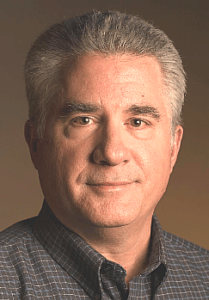As much as we might wish otherwise, living in the post-COVID world promises to be a pretty rough ride over the next 20 years.
So buckle up. Not just because of the global impact of the pandemic itself, but because of the increasing effects of social fragmentation, climate change, mass migration and the inability of governments and institutions to meet the demands of the people they serve.
That’s the forecast of the latest “Global Trends” report, released April 8 by the National Intelligence Council, an arm of the U.S. Office of the Director of National Intelligence. The report looks at potential scenarios between now and 2040, and they all involve major international change — ranging from the manageable to the catastrophic.
‘Most significant disruption since World War II’
“The ongoing COVID-19 pandemic marks the most significant, singular global disruption since World War II, with health, economic, political and security implications that will ripple for years to come,” the report states. “The effects of climate change and environmental degradation are likely to exacerbate food and water insecurity for poor countries, increase migration, precipitate new health challenges, and contribute to biodiversity losses.
“These challenges will intersect and cascade, including in ways that are difficult to anticipate.”
There’s more: “Novel technologies will appear and diffuse faster and faster, disrupting jobs, industries, communities, the nature of power and what it means to be human. Continued pressure for global migration — as of 2020 more than 270 million persons were living in a country to which they have migrated, 100 million more than in 2000 — will strain both origin and destination countries to manage the flow and effects. These challenges will intersect and cascade, including in ways that are difficult to anticipate.”
Every nation will face these challenges — rich and poor, powerful and weak, democratic and authoritarian. Perhaps that will compel us to work together more and compete a bit less. New communication technologies now connect us instantly, creating new efficiencies and improving living standards as our economies become increasingly integrated.
Paradoxically, however, “that very connectivity has divided and fragmented people and countries,” says the report. It also will “create and exacerbate tensions at all levels, from societies divided over core values and goals to regimes that employ digital repression to control populations. As these connections deepen and spread, they are likely to grow increasingly fragmented along national, cultural or political preferences. In addition, people are likely to gravitate to information silos of people who share similar views, reinforcing beliefs and understanding of the truth.”
Sound familiar?
Tribalism goes global
The digital tribalism that has divided Americans into hostile political and cultural camps in recent years is affecting much of the rest of the world in similar ways. In theory, citizens of free countries can access virtually all of human knowledge online. In reality, we are gravitating toward the bits and pieces we want to believe.
“The digital tribalism that has divided Americans into hostile political and cultural camps in recent years is affecting much of the rest of the world in similar ways.”
At the same time, governments, institutions and international organizations are struggling to meet the new realities — and in many cases failing. As old systems erode and crumble, public frustration and conflict will increase within and between nations.
They will either adapt or risk collapse. Developed countries with coastlines, for example, likely will have to build massive seawalls and plan for relocating whole populations as climate change brings rising sea levels. Poorer countries with fewer resources will struggle to respond to climate-caused storms, droughts and floods.
In a glimpse of what may accelerate in the years ahead, hundreds of global aid organizations published an open letter April 20 supporting the U.N. Call for Action to Avert Famine in 2021, warning that millions already are suffering from Yemen to Venezuela: “People are not starving — they are being starved. … by conflict and violence; by inequality; by the impacts of climate change; by the loss of land, jobs or prospects; by a fight against COVID-19 that has left them even further behind.”
Meanwhile, countries with declining or aging populations, including the United States, will seek many more immigrant workers to compete with the economies of younger nations. If they don’t, “decades of progress in education, health and poverty reduction will be difficult to build on or even sustain,” the forecast warns.
Five scenarios
One of five international political scenarios could play out between now and 2040, according to the report:
Democracies might experience a new resurgence, with the United States and other free societies leading the way in global development and cooperation. Conversely, China could emerge as the global leader with its authoritarian model but would be unlikely to solve major international issues. Or, these two superpowers could dominate separate spheres. In still another model, multiple competing power blocs could develop around the world. Last, global environmental catastrophe could result in multiple national revolutions, with new alliances emerging to pick up the pieces.
Three ways to make a difference
How can we possibly influence the course of events on such a global scale as individual Christians? Allow me to offer a few suggestions:
Pray, locally and globally, with your Bible in one hand and your newspaper or smartphone in the other. Pray for God’s will to be done on earth as it is in heaven. From Scripture, we know God wills that all nations hear the gospel of salvation, that the poor be clothed and fed, that the victims of injustice and hatred be defended, that the immigrant and the refugee (whether they flee from war, poverty or natural disaster) be rescued.
“If you reside in one of the many silos of American isolationism — mental, political or spiritual — get out of it.”
Think. Open your mind to the world. If you reside in one of the many silos of American isolationism — mental, political or spiritual — get out of it. God needs well-informed servants who know what is happening around the world, how to separate fact from fiction and how to resist being manipulated by lies and conspiracy theories. I’ve lost count of the number of Christian friends who have told me they don’t read or listen to the news because it’s too biased or “upsetting.” That is nothing more than spiritual and intellectual laziness when a universe of useful information is only a click away. God will judge us for willful ignorance.
Act. Maybe you can’t solve the global migration crisis, for example, but you can welcome some immigrants to your community. You can lead your church to sponsor a refugee family. You can vote out that local politician who whips up anti-immigrant hatred. You can tell your congressional representatives and your president to restore orderly, humane immigration policies and end the shameful era of keeping refugees and asylum seekers out.
This is still God’s world. You can help God redeem it, or you can sit on the sidelines.

Erich Bridges
Erich Bridges, a Baptist journalist for more than 40 years, retired in 2016 as global correspondent for the Southern Baptist Convention’s International Mission Board. He lives in Richmond, Va.


